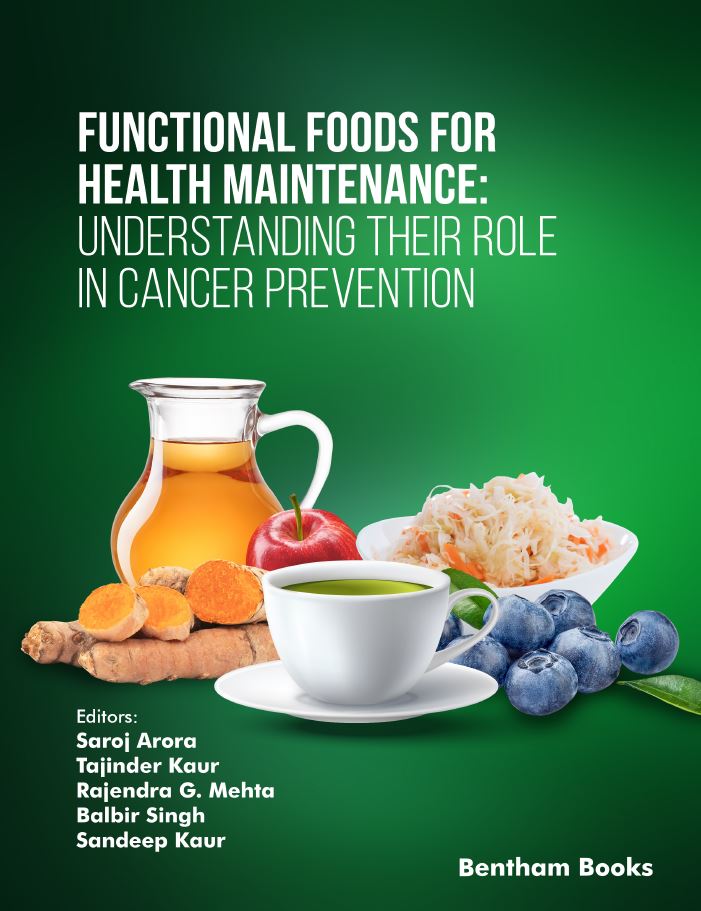Molecular Mechanisms of Flavonoids Mediated Therapy and Chemoprevention of Cancer

- Authors: Sandeep Kaur1, Shagun Verma2, Kritika Pandit3, Jeevanjot Kaur4, Samiksha5, Drishtant Singh6, Satwinder Kaur Sohal7
-
View Affiliations Hide Affiliations1 Department of Botanical and Environmental Sciences, Guru Nanak Dev University, Amritsar 143005, Punjab, India 2 Department of Botanical and Environmental Sciences, Guru Nanak Dev University, Amritsar-143005, Punjab, India 3 Department of Botanical and Environmental Sciences, Guru Nanak Dev University, Amritsar-143005, Punjab, India 4 Department of Botany, Khalsa College, Amritsar-143005, Punjab, India 5 Department of Zoology, Guru Nanak Dev University, Amritsar-143005, Punjab, India 6 Department of Biotechnology, Khalsa College, Amritsar-143005, Punjab, India 7 Department of Zoology, Guru Nanak Dev University, Amritsar-143005, Punjab, India
- Source: Functional Foods for Health Maintenance: Understanding their Role in Cancer Prevention , pp 199-214
- Publication Date: August 2023
- Language: English
Flavonoids derived from daily dietary source and plant products play a crucial role in the prevention and treatment of various degenerative diseases and cancer. Flavonoids are further subdivided into subclasses such as flavones, flavan-3- ols, flavonols, flavanones, isoflavones and anthocyanidins. There has been a resurgence in the research on flavonoids due to enhancement in the evidence that proves the health benefits of flavonoids. Several preclinical and epidemiological studies revealed that dietary intake of flavonoids may be found helpful in the reduction of risk of tumors like colon, breast, lung, pancreas and prostate. It also acts on the reactive oxygen species, and cellular signal transduction pathways associated with cellular proliferation, angiogenesis and apoptosis. Flavonoids are non-toxic in nature, so intensively studied the broad, vast aspect of their efficacy in biological activities that in turn promotes health benefits and also added to its availability in abundance in our daily diets, for instance, fruits, green leaves, tea, red wine and vegetables. Overall, the exciting data obtained so far elicit that dietary flavonoids have been considered a beneficial cancer preventive approach. This chapter unravels the molecular mechanisms involved in potential cancer preventive efficacy accomplished by the novel biological approach of flavonoids.
-
From This Site
/content/books/9789815179217.chap8dcterms_subject,pub_keyword-contentType:Journal -contentType:Figure -contentType:Table -contentType:SupplementaryData105

